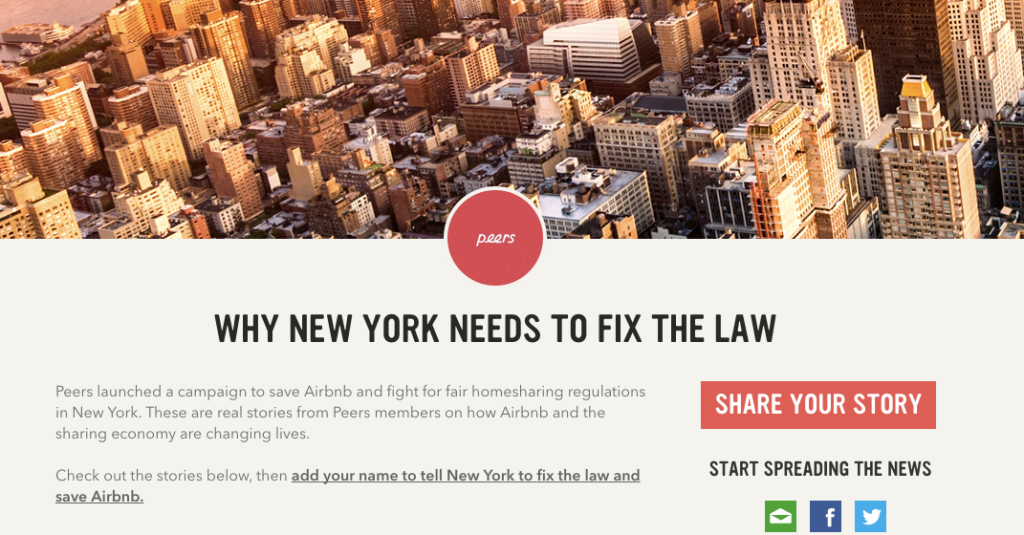
During the last years we had a lot of controversy around the sharing economy, particularly its most successful companies: Über and Airbnb were and are in the spot.
The list of examples is quite long, some of them even violent and dramatic such as über cars being burned, airbnb promoting highly successful citizen campaigns in NYC to prevent being banned or even top executives of über imprisoned in Paris.
Many of these conflicts originate with the existing incumbents: taxi companies, hotel chains, … trying to maintain their privileges against technological and/or business model innovation. This is not new, exactly the same thing happened when cars were taking the place of carriages or taxis (a quite recent invention in historical terms) began to establish in cities.
However, these are not the only source of conflicts, others arise from a lack of clarity on the objectives of a city, the type of society that they envision and the way to make it real. Many times, trying not to loose votes, politicians are ambivalent and say one thing, the opposite and the contrary at the same time and of course, this generates conflicts.
If we try to bring clarity to the discussion around the city that we envision, pretty soon we will find ourselves talking about regulations. This is so because they determine to a great extend the type of society that we live in. Do you think regulations are neutral ? or always in favor of the City overall ? Of course they are not ! they shape in many ways our society.
One good example of all this is to analyze the factors that contribute to the success of cities in terms of attracting visitors. Elements such as the brand of the city, its image displaying a vibrant life full of exciting proposals greatly contribute to make the city more attractive and become a magnet for visitors. All this is not created mostly by the government but by local actors.
How is the food there? Are restaurants offering new proposals? How is night life? Do they have interesting live music? How is accommodation there? Overpriced and completely boring hotels or exciting and full of variation coming from a variety of proposals? Is transport a chaos with angry taxi drivers that treat you badly or do you have a multitude of options where to choose? Can you do something else than visiting museums? Do you have theaters, day and night proposals for everybody? …
All these are questions that shape the attractiveness of a city for visitors are aspects where policies play a huge role. For example, live music was pretty common in the Barcelona of the 70’s, however after that period a new regulation was enacted protecting the interests of neighbors and nowadays only in very few places you can find live music, and when you find it, it is mostly illegal. Is this a good thing for the city? I guess we all can agree that it is not ! Enacting norms that effectively ban live music is the only way to protect the interests of a few citizens?
We can find many more examples of norms that backfire when they try to protect the interests of a few against the common interest of the majority.
Will it happen too if we restrict / ban airbnb or über ?
Why is this so important ?


